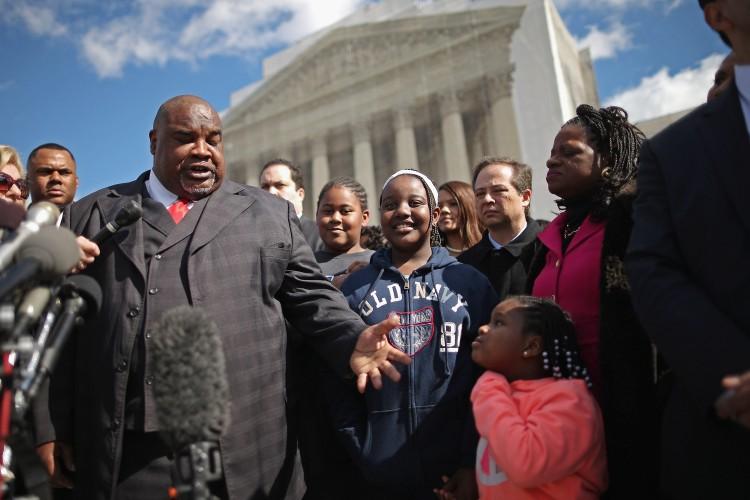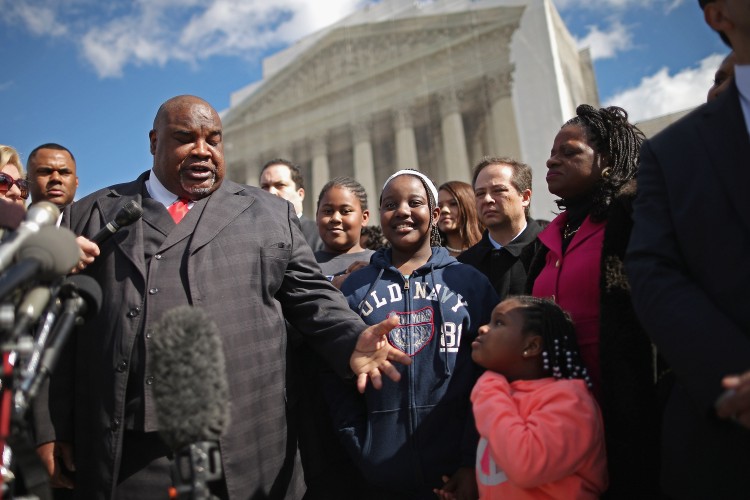In a tense discussion at a Feb. 27 hearing, Supreme Court justices heard arguments about whether or not Section 5 of the Voting Rights Act of 1965 is constitutional.
When attorney Bert Rein presented his opening statement about why Shelby County, Ala., should no longer be under federal supervision, Justice Sonia Sotomayor was blunt: “Assuming I accept your premise, and there’s some question about that, that some portions of the South have changed, your county pretty much hasn’t.”
She said that the county has made 240 discriminatory voting laws that were blocked under Section 5, adding, “You may be the wrong party bringing this.”
In 2009 the court extended the requirement that certain parts of the country with a history of discrimination against minorities must get federal preclearance before changing any voting procedures. Those areas can bail out of pre-clearance if they meet certain requirements.
In 2009, the court did not settle the question of whether such oversight is constitutional.
Shelby County sued the Department of Justice over the preclearance requirement after a controversial redistricting.
“Why would we vote in favor of a county whose record is the epitome of what caused the passage of this law to start with?” Sotomayor said.
Rein argued that Alabama has changed, and that it is not fair or rational to treat it differently than any other state.
“Congress has to treat each State with equal dignity,” he said. “It has to examine all the States.” His essential argument was that singling out certain states or counties for preclearance should not be legal because it violates their sovereignty.
Justice Antonin Scalia seemed to support that reasoning.
“I thought it’s sort of extraordinary to say Congress can just pick out, we want to hit these eight States, it doesn’t matter what formula we use; so long as we want to hit these eight States, that’s good enough and that makes it constitutional,” said Scalia. “I doubt that that’s true.”
Steven R. Shapiro, American Civil Liberties Union legal director, said in a Feb. 27 press release that discrimination against minorities is alive and well and needs federal oversight.
“The recent wave of restrictive voting laws has again demonstrated why the need for Section 5 of the Voting Rights Act is as great as ever in order to preserve our democracy’s fundamental right to vote,” he said.
The Epoch Times publishes in 35 countries and in 21 languages. Subscribe to our e-newsletter







